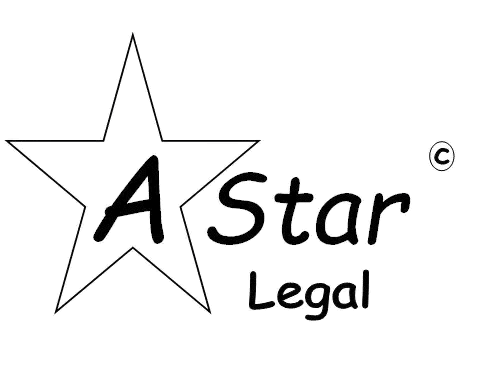Last updated on August 28th, 2024 at 10:34 am
Introduction
The International Organization for Standardization (ISO), a well-known name among corporations worldwide, is responsible for producing international standards. Talk about the Types of ISO Certification. From Quality Management Systems (ISO 9001) to Environmental Management Systems (ISO 14001), Information Security Management Systems (ISO 27001), and even specialized fields like Medical Devices (ISO 13485) and Food Safety Management Systems (ISO 22000), the extensive suite of ISO standards covers a wide range of industries. These standards guarantee that goods, services, and systems follow internationally recognized norms, promoting uniformity, security, effectiveness, and interoperability between nations and sectors.
To address specific needs and improve overall performance within their sectors, businesses operating in distinct sectors employ different ISO credentials certifications. Key among these are ISO 9001 for quality control purposes, and ISO 14001 governing how companies should take care of environment-related issues and protect confidential information managed at organizational levels through ISO 27001. At the same time, companies need to ensure that ISO 45001 is followed which caters to safety standards as far as occupational health is concerned.
Table of Contents
ToggleTypes of ISO Certification
1. ISO 9001: Quality Management Systems (QMS)
ISO 9001 is the world’s most well-known and extensively applied quality management system standard. It describes how quality management systems are used to create quality management principles. It includes the process approach of the organization, paying attention to the needs of the customer, implementing the process, etc. Certification against this standard demonstrates that an organization produces goods or renders services that complete customers’ and regulatory bodies.
2. ISO 14001: Environmental Management Systems (EMS)
There is a system that ISO 14001 provides clearly to protect the environment. It reacts to the constantly changing provisions of the environment accompanied by socio-economic demands. Organizations that have undergone this certification find it possible to organize their environmental duties methodically. However supporting sustainability, and it involves several areas of natural management pollution control, waste management, and resource use.
3. ISO 45001: Occupational Health and Safety Management Systems
ISO 45001 aims to provide safe working conditions and a zero accident or illness rate related to the workplace. By identifying hazards and risks associated with their work, businesses can use the certificate when trying to improve their OHS performance, by minimizing, or preventing them.
4. ISO 27001: Information Security Management Systems (ISMS)
This specification assists entities in the protection of things like intellectual property, monetary records, worker information, and data given to them by customers. Accredited certification is a statement that the company has designed rules. It protects its data systems against different forms of threats to maintain the required privacy, integrity, and availability of data.
5. ISO 50001: Energy Management Systems
ISO 50001 permits businesses to maximize energy savings, cut expenses associated with energy,
and improve energy performance by providing a model for implementing best energy management practices. This permits companies to reduce energy consumption in a systematic way which enables them to set energy performance targets after establishing their baseline energy performance.
6. ISO 22000: Food Safety Management Systems
Organizations in the food industry are subject to ISO 22000. It posits the essentials necessary for a food safety management system which, when taken together, will enable food safety to be maintained across the food chain until it gets consumed as a final product. These are either generally acknowledged or key elements. Some of the features of such a system are interactive communication, management of the system itself as well as prerequisite programs and the HACCP concept.
7. ISO 13485: Medical Devices Quality Management Systems
ISO 13485 details the standards quality control setup must meet to allow a company to make available medical appliances and related facilities that always conform to the regulations. For manufacturers and suppliers of medical appliances, it is a requirement without which they will not exist. It protects medical items from medical devices.
8. ISO 20000: IT Service Management
ISO 20000 says providers should arrange, enact, execute, control, examine, keep going, and improve service management framework systems. This standard is specifically intended to aid companies. In the delivery of efficient, top-notch IT service offerings. while ensuring that matches their business interests as well as their client’s requirements.
9. ISO 31000: Risk Management
ISO 31000 offers standards and leads about risk management. The guidelines assist organizations to manage risk efficiently through a model that merges the company’s governance, strategy, and planning concerning risks. The standard can be applied by any organization rather than the range of its operations, the kind of industry that it operates in, or the field in which it belongs. The principles it contains encapsulate the identification, analysis as well as appraisal of possible risks.solution
10. ISO 17025: Testing and Calibration Laboratories
Testing and calibration laboratories use ISO 17025 as their primary standard, to build confidence by generating valid results. So that such labs can convince others within and outside the country they work competently. Being competent implies adopting a quality system and showing the ability of laboratories.
Conclusion
To enhance their processes, risk management, quality assurance, and customer satisfaction, organizations must have ISO certifications. These are like commitments to best practices with added advantages like operational efficiency improvement from process optimization, observance of legal compliance standards, and an upper hand over competition. By obtaining ISO certifications, organizations demonstrate their dedication to excellence and continuous improvement, leading to increased trust from stakeholders and potential customers.
For more information stay updated with – A Star Legal



